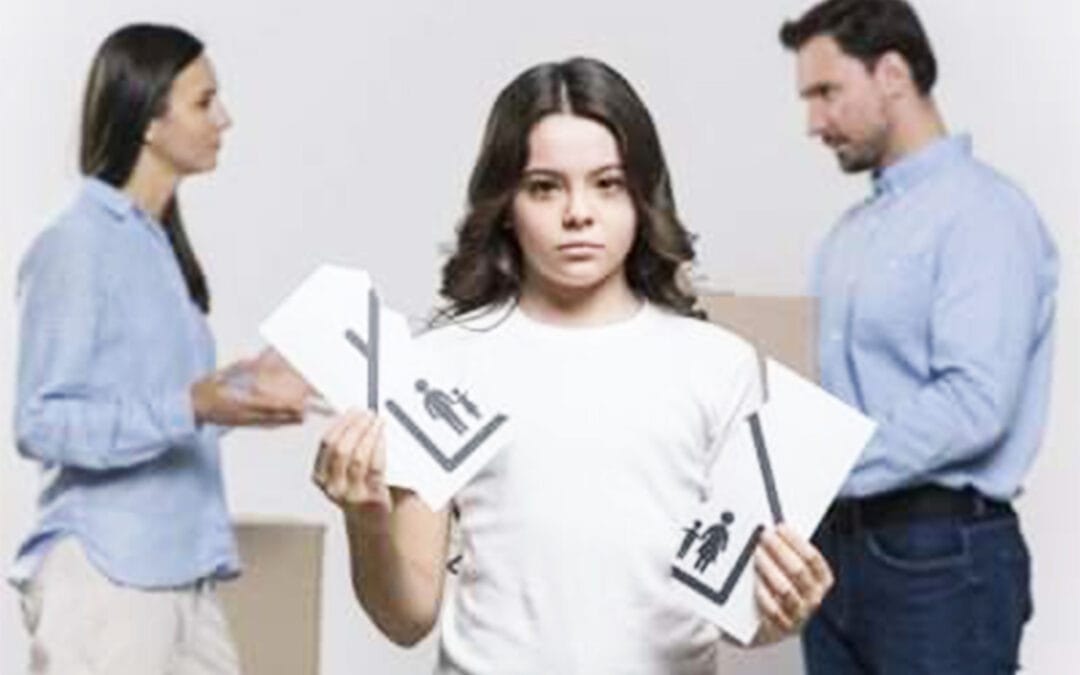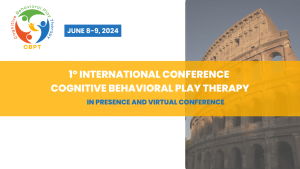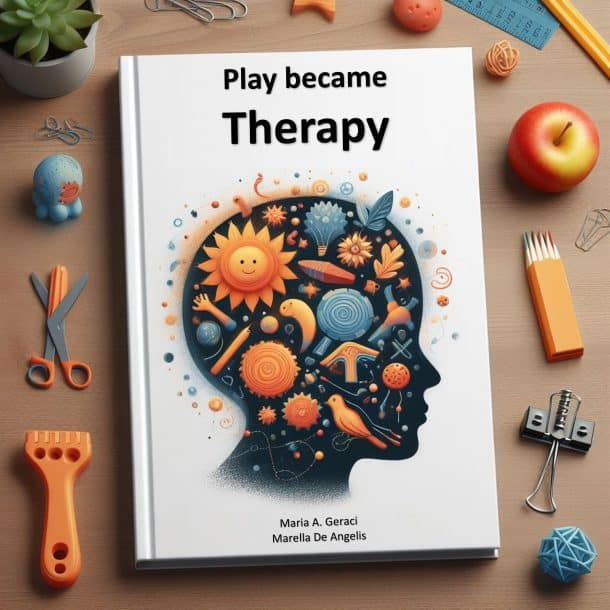Parental divorce is considered a stressful experience that often accelerates onset of a complex range of symptoms in children.
This event, which some children are forced to face during their development, requires specific cognitive, relational and emotional skills that will determine their ability to cope with the event. Children in the first 18 months to 1 year postdivorce are considered most vulnerable, follow-up studies indicate that the negative effects of divorce often diminish over time. It is shown that preschool children possess abilities aimed at organizing cognitive skills in a peculiar form of organization, that of scripts. Usually around the two-and-a-half years, children start building scripts of routine activities, in which they know how to behave and can describe them quite accurately. The script can have a dual effect on the way child records and recounts his experiences: on the one hand it facilitates their interpretation, encoding and remembering, on the other it can create distortions (Hudson et al., 1992). Regarding relational skills, Selman (1976) proposed a conceptualization of interpersonal skills based on progress in role-taking skills, which consists not only in knowing how to distinguish people’s points of view but also in coordinating different perspectives. Child who witnesses conflict situations between parents at home can elaborate what he observes in very different ways, depending on his role-taking abilities. Finally, regarding emotional skills, at age 4 they understand feelings such as regret over a promise not kept by an adult, or realize that, if a child believes that a person will never come back, he will be very sad even if what he believes does not it’s true. Although these emotional skills are already quite sophisticated, it must be borne in mind that preschool-aged children are still unable to correctly evaluate conflicting clues (Malagoli Togliatti M., Capri P., Rossi P., Lubrano Lavadera A., Crescenzi M., 2011).
A critical factor that is detected in clinical practice is parents adaptation after divorce. For example, if custodial parent did not want a divorce and is experiencing profound depression as a consequence of this, it appears that the child may be adversely affected. Children who have regular and pleasant encounters with the non-custodial parent achieve the best adaptation. Preschoolers, especially boys, experience a particularly difficult period of adaptation after their parents’ divorce. Among the most common reactions occur: behavioral regression (accident in personal hygiene), worry of being abandoned by both parents and feeling responsible for the divorce. The likelihood of the onset of behavioral problemsfollowing divorce seems to be influenced by gender and age. Furthermore, males appear to become more aggressive and females more self-contained and anxious.
The clinical case reported here was described in the book “Cognitive Behavioral Play Therapy”, by Susan Knell (1993). It describes the treatment of a child, who has experienced a conflictual parental divorce, through play sessions structured on a Cognitive-Behavioral Play Therapy model, in association with an improvement in problem solving skills. Progress achieved by the child ongoing therapy will also be highlighted. Finally, the results of the follow-up will be reported.
Case description
Kenny is a six-year-old boy who was advised for intervention due to school problems that emerged after his parents divorced. An only child, after Kenny’s father moved, his mother noticed drastic changes in him, in particular he exhibited anger and aggressive behavior at school.
Assessment with parents
Case request comes after four months from the conclusion of divorce, however the parents have already been separated for a year. Parents both declare that their relationship is extremely conflicting and they never agree on anything. Kenny’s father fights for custody which is assigned to his mother. Kenny receives regular visits from his father which prove to be a continuing source of conflict due to disagreement between parents.
Assessment with child
At school Kenny is described by his teacher as a sweet, sensitive child who is sometimes able to cooperate. He was seen grabbing, kicking and hitting to get what he wants. He cries frequently and is irritable at school, sometimes letting it slip that he would go to meet his father. Kenny says “Dad and Mom got divorced and it wasn’t nice for me”. “Divorced people don’t like each other.” When asked what makes him sad, Kenny says “When people don’t like each other.” He looks sad and withdrawn during most of the first few sessions. When he talks about his parents and their divorce, his mood is particularly sad.
Treatment
Kenny goes to therapy once a week while the parents are followed as a couple every three weeks. Due to the conflict between parents regarding Kenny, most of the work with them is aimed at creating a coherent set of rules and less abrupt transition between the time Kenny spends with his father and the time he spends with his mother. It is also necessary that they solve their problems. During CBPT one-to-one sessions with Kenny, the therapist creates several puppet role-playinggames that deal with similar situations to those described by parents and teachers and which are problematic for Kenny. In these situations, puppets gradually learn to verbalize angry emotions instead of hitting and kicking. In spontaneous playKenny often uses clay to create “slimy” and “bad” people and often builds fortresses inhabited by “good” and “bad” people.
Results
At the end of treatment, 8 months after the start, Kenny behaves more correctly at home and school.
Follow-up
Follow-up at 18 months later suggests that Kenny still has unresolved issues related to divorce. Not surprisingly, there is still a heated conflict between his parents, both in face-to-face interactions and via justice system. Unfortunately for Kenny, their conflicts are now extremely focused on him.
Conclusions
The clinician who works with children whose parents have divorced is regularly faced with parental conflict. Cognitive-Behavioral Play Therapy can be helpful in allowing the child to learn alternative strategies for coping with events and for dealing with conflict situations differently. It is possible that family that has faced with a divorce will not change, but the child can acquire skills from the treatment that will strengthen his or her ability to cope with stressful family situations.



